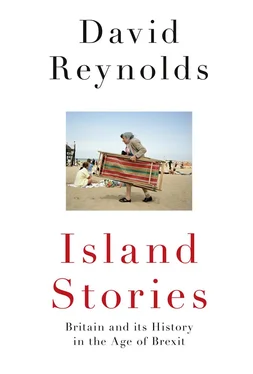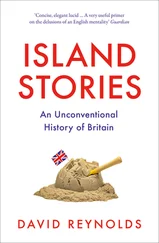A couple of months later this kind of British rhetoric about a thousand years of history and a global destiny was picked up by Dean Acheson – who had served as US Secretary of State of State in 1949–53 at height of the Cold War. Acheson’s line about Britain losing an empire but not finding a role – quoted at the start of this book – has now become notorious, but the background story is important. In 1962, Acheson – now a crusty elder statesman – was asked to deliver the keynote address to a student conference at the US Military Academy at West Point on 5 December. He made his usual pitch about the importance of the Atlantic Alliance, and the speech attracted little attention in the United States. But embedded in a section about some of the problems facing Western Europe, was the single paragraph on Britain that proved incendiary:
Great Britain has lost an empire and has not yet found a role. The attempt to play a separate power role – that is, a role apart from Europe, a role based on a ‘special relationship’ with the United States, a role based on being head of a ‘commonwealth’ which has no political structure, or unity, or strength, and enjoys a precarious economic relationship by means of the Sterling Area and preferences in the British market – this role is about played out. Great Britain, attempting to be a broker between the United States and Russia, has seemed to conduct policy as weak as its military power. H.M.G. [Her Majesty’s Government] is now attempting – wisely, in my opinion – to reenter Europe, from which it was banished at the time of the Plantagenets, and the battle seems to be about as hard-fought as were those of an earlier day. [3] Конец ознакомительного фрагмента. Текст предоставлен ООО «ЛитРес». Прочитайте эту книгу целиком, купив полную легальную версию на ЛитРес. Безопасно оплатить книгу можно банковской картой Visa, MasterCard, Maestro, со счета мобильного телефона, с платежного терминала, в салоне МТС или Связной, через PayPal, WebMoney, Яндекс.Деньги, QIWI Кошелек, бонусными картами или другим удобным Вам способом.
That whole paragraph is worth quoting both because of its contemptuous dismissal of the Commonwealth, the Sterling Area and Britain’s Cold War diplomacy and also because of its (now rather uncanny) prediction that Britain’s attempt to enter the EEC might presage another Hundred Years’ War. Above all, however, it was the epigram about Britain losing an empire without finding a role that caught the eye in London and provoked an outcry in Tory circles. The Express denounced this American ‘stab in the back’ of its devoted ally; the Telegraph observed snidely that Acheson had always been ‘more immaculate in dress than in judgement’. [4] Конец ознакомительного фрагмента. Текст предоставлен ООО «ЛитРес». Прочитайте эту книгу целиком, купив полную легальную версию на ЛитРес. Безопасно оплатить книгу можно банковской картой Visa, MasterCard, Maestro, со счета мобильного телефона, с платежного терминала, в салоне МТС или Связной, через PayPal, WebMoney, Яндекс.Деньги, QIWI Кошелек, бонусными картами или другим удобным Вам способом.
And because the former Secretary of State was deemed to be close to President Kennedy, the Prime Minister himself felt it necessary to offer his own capsule narrative of British history, to placate his party and what he called ‘the “patriotic” elements in the country’. Macmillan declared that ‘Mr Acheson has fallen into an error which has been made by quite a lot of people in the course of the last four hundred years, including Philip of Spain, Louis XIV, Napoleon, the Kaiser and Hitler.’ [5] Конец ознакомительного фрагмента. Текст предоставлен ООО «ЛитРес». Прочитайте эту книгу целиком, купив полную легальную версию на ЛитРес. Безопасно оплатить книгу можно банковской картой Visa, MasterCard, Maestro, со счета мобильного телефона, с платежного терминала, в салоне МТС или Связной, через PayPal, WebMoney, Яндекс.Деньги, QIWI Кошелек, бонусными картами или другим удобным Вам способом.
An Evening Standard cartoon showing Prime Minister Harold Macmillan begging President John F. Kennedy to let him be the back legs of the American pantomime horse, while Dean Acheson looks on from the wings.
Acheson never retracted his argument but he did later express regret about how he had expressed it – albeit in a typically sardonic manner. ‘The first requirement of a statesman is that he be dull,’ he told an interviewer in 1970, adding that this was ‘not always easy to achieve’. He admitted that the controversial sentence in his West Point speech suffered from being too epigrammatic and quotable. ‘If I’d taken twice the number of words to express it, it would have been inoffensive and recognised as true at once. Since then it has been adopted by almost every British politician, though they have never given me credit for it at all.’ [6] Конец ознакомительного фрагмента. Текст предоставлен ООО «ЛитРес». Прочитайте эту книгу целиком, купив полную легальную версию на ЛитРес. Безопасно оплатить книгу можно банковской картой Visa, MasterCard, Maestro, со счета мобильного телефона, с платежного терминала, в салоне МТС или Связной, через PayPal, WebMoney, Яндекс.Деньги, QIWI Кошелек, бонусными картами или другим удобным Вам способом.
Acheson was right: his one-liner about losing empire and not yet finding a role became almost a cliché of British commentary, especially for those who wanted Britain to join ‘Europe’. [7] Конец ознакомительного фрагмента. Текст предоставлен ООО «ЛитРес». Прочитайте эту книгу целиком, купив полную легальную версию на ЛитРес. Безопасно оплатить книгу можно банковской картой Visa, MasterCard, Maestro, со счета мобильного телефона, с платежного терминала, в салоне МТС или Связной, через PayPal, WebMoney, Яндекс.Деньги, QIWI Кошелек, бонусными картами или другим удобным Вам способом.
Yet the emotional invocations of national history by Gaitskell and Macmillan reflect an abiding counter-strain, which re-emerged, for instance, at the time of German unification in 1989–90. ‘We beat the Germans twice, and now they’re back,’ Margaret Thatcher exclaimed during a European summit in December 1989, a month after the Berlin Wall was breached. [8] Конец ознакомительного фрагмента. Текст предоставлен ООО «ЛитРес». Прочитайте эту книгу целиком, купив полную легальную версию на ЛитРес. Безопасно оплатить книгу можно банковской картой Visa, MasterCard, Maestro, со счета мобильного телефона, с платежного терминала, в салоне МТС или Связной, через PayPal, WebMoney, Яндекс.Деньги, QIWI Кошелек, бонусными картами или другим удобным Вам способом.
Her close friend Nicholas Ridley vented similar feelings splenetically to a Spectator journalist, calling the European monetary union ‘a German racket, designed to take over the whole of Europe’ and exclaiming that, as for handing over sovereignty to the EC, ‘you might as well give it to Adolf Hitler, frankly.’ The Spectator gleefully ran the interview as a cover story, graced by a poster of the West German chancellor Helmut Kohl daubed with a Hitler moustache, and Ridley was obliged to resign from the Cabinet. So Boris Johnson’s battle cry in 2016 that the British must again be ‘heroes of Europe’ and stand up to German domination was more of the same. The Telegraph headlined that story: ‘Boris Johnson: The EU wants a superstate, just as Hitler did’. [9] Конец ознакомительного фрагмента. Текст предоставлен ООО «ЛитРес». Прочитайте эту книгу целиком, купив полную легальную версию на ЛитРес. Безопасно оплатить книгу можно банковской картой Visa, MasterCard, Maestro, со счета мобильного телефона, с платежного терминала, в салоне МТС или Связной, через PayPal, WebMoney, Яндекс.Деньги, QIWI Кошелек, бонусными картами или другим удобным Вам способом.
Читать дальше












